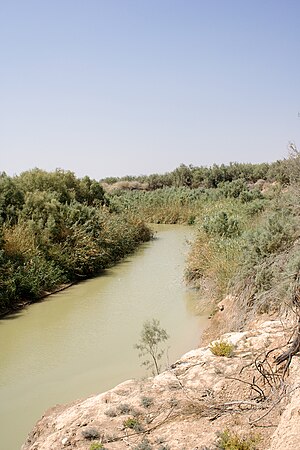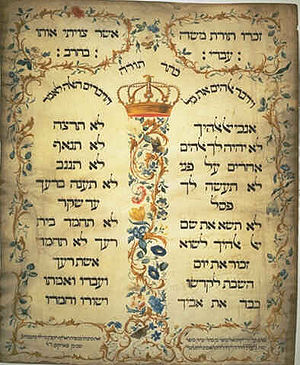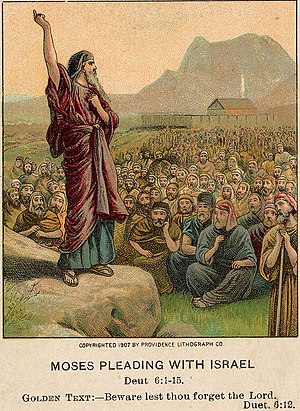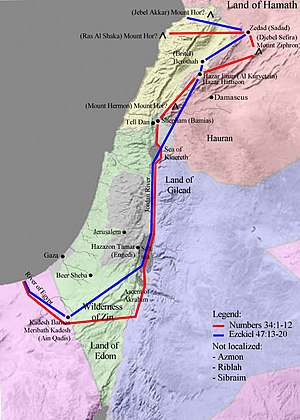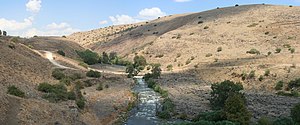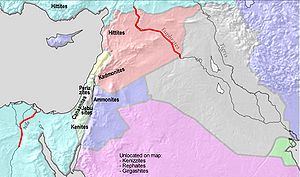These chapters begin immediately after Israel was through burying the 24,000 people who died from a plague that God unleashed in their camp when they allowed themselves to be seduced by the Midianites. After purifying the nation of those who strayed from Him, God repeated the times of assembly, when He could be sought and found, emphasizing that He must be approached correctly. Thus, God reassured the nation of His love for them before He addressed their grief over those who perished.
No doubt, the deaths of so many weighed as heavily on God as they did on Israel. So, God told Moses to take vengeance on the Midianites. Even though there were over 600,000 men in Israel, God instructed Moses to send only 1,000 armed men from each tribe. By sending relatively few men into battle, God was telling Israel that He Himself was going to supply the rest of the military strength Israel required to defeat the Midianites.
I think that since the nation was so recently chastised and reaffirmed by God, they were more inclined to take God at His Word. There is no record of anyone defying Moses about the numbers of men sent to war or about the need to go to war.
This was a war, ordered by God, against an entire people. All Midianite males were killed, including the kings and the wizard, Balaam. All of the Midianite cities and camps were destroyed. Even though this was not God’s original plan, the only Midianites spared were the virgin females. Israel took all of their flock, herds, and goods as plunder which had to be purified before brought into the camp.
Vengeance is the idea of inflicting harm on someone who has harmed you. I quote Numbers 31:1-2a:
The Lord said to Moses, “Take vengeance on the Midianites for the Israelites.”
In Hebrew, נָקַם (naqam) means vengeance, the same as in English.
So why does a loving God want vengeance? It was because God loved Israel so much that He ordered Moses to take vengeance on the Midianites who caused many in Israel to turn from God to Baal worship. I feel that in this passage God showed that He mourned for the Israelites who rejected Him, accepted Baal, subsequently perishing in the judgement of the plague.
By rejecting God and His people, the Midianites set themselves up as equal to God. If the Midianites really recognized who God was, they would have beseeched Israel to teach them how to correctly worship God. Instead they chose to corrupt Israel, to weaken the nation, and then to attempt to destroy the entire people. Since the Midianites regarded themselves as God’s equals, He fought against them as though they were an equal match to Him. Fighting against the Midianites, twelve thousand men of Israel killed every single male including their wizard Balaam. However, not one Israelite warrior was killed in this battle. Clearly God fought for Israel and ensured their uncontested victory.
In this battle, God also showed the new generation of Israelites that they could count on Him to defeat anyone who stood in the way of His Will, which was that Israel live in the land of Canaan. As they were about to enter Canaan, Israel had to believe that they were about to arrive as owners who find squatters on their property and that God was their strength and justification.
In fact, today, as in the past, Israel’s sole claim to the land is the nation’s resolve to trust and believe that God gave them that land in the everlasting covenant with Abraham in Genesis 17: 7 -8:
“I will establish my covenant as an everlasting covenant between me and you and your descendants after you for the generations to come, to be your God and the God of your descendants after you. The whole land of Canaan, where you are now an alien, I will give as an everlasting possession to you and to your descendants after you; and I will be their God.”
In Hebrew, עוֹלָם (`owlam), everlasting means continuous, eternal, and perpetual. Even though nearly five hundred years lapsed between the entrance into Canaan and the initial covenant with Abraham, Israel, too, had to unwaveringly believe in God’s Word, in His faithfulness to Abraham, and most importantly, believe that God was in fact the Sovereign God, Creator of the Heavens and the Earth, the King of the Universe. They had to firmly believe that the God who revealed Himself to them, owned all of the earth and that He alone assigned lands to nations.
Everyone who defied/defies Israel’s rightful ownership of Canaan, were/are in fact defying the God, who says that He is the King of this Universe. The God of Israel states in the Bible that the entire land of Canaan belongs to Israel because He gave them that land. The next question is, do you believe that the God of Israel, the I AM that I AM, is who He says He is? Do you take Him at His Word?
If you take God at His Word, what kind of response do you make to that Word?
 Image via Wikipedia
Image via Wikipedia
